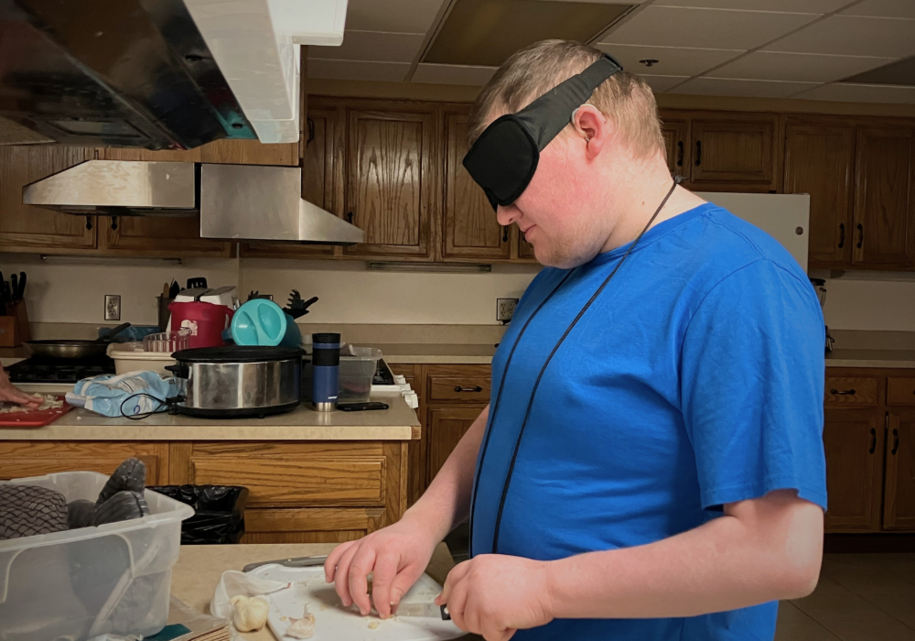
About YATP
What?- YATP is a uniquely dynamic 4 PLUS program offered through IDB that addresses the need for non-visual skills training for young adults so they can navigate and succeed in life
Who?- Any student that has completed the academic requirements to graduate from High School but still has an Individualized Education Plan
When?- YATP takes place parallel to the usual school year and starts and ends to closely match most districts in Iowa
Where?- In an effort to meet the needs and rising population of Iowan students, YATP will be evolving into an outreach model, starting with the Fall Semester of 2024. This modality will allow YATP to engage with more students across the entire state while still offering opportunities for activities in Des Moines
Why?- YATP addresses the widespread deficit in non-visual skills and self-advocacy training found amongst many of our blind students in Iowa. As our state continues to grow so does the demand for skill training that can help pave the path to self-advocacy and independence for Iowan students. YATP accomplishes this by building and enhancing on student’s existing learning and practices while introducing new skills as well.
Ladder to Success
The 4 major areas of focus for YATP are:
Braille
Braille is a core concept of YATP due to the fact that for any student to have success in either their academic or professional careers they will need to have a competent level of literacy. Our Braille lessons assist in not only enhancing existing reading strategies but also in boosting comprehension.
Travel
In order for students to successfully take advantage of every opportunity that may come with professional or academic paths they will need to be able to navigate through them. Travel lessons assist in teaching new and building up on existing travel skills and also facilitate confidence and aptitude across multiple other facets of learning and life.
Technology
By incorporating various devices, programs, and strategies technology helps mitigate barriers to employment and education and fosters inclusivity in the learning and training process. Technology training is a vital component of YATP and through the lessons and training involved with it, students will increase their knowledge and skill acquisition for whatever their next steps may be.
Life Skills
We also facilitate the teaching of various life skills and home management techniques which are important for students not only to build independence but also to increase self-awareness, rational decision making, and build up self-advocacy.
Please field any and all additional questions, comments, concerns, or interest to the Education and Training Program Administrator Ambrose Ball-Harney whose contact information can be found below: